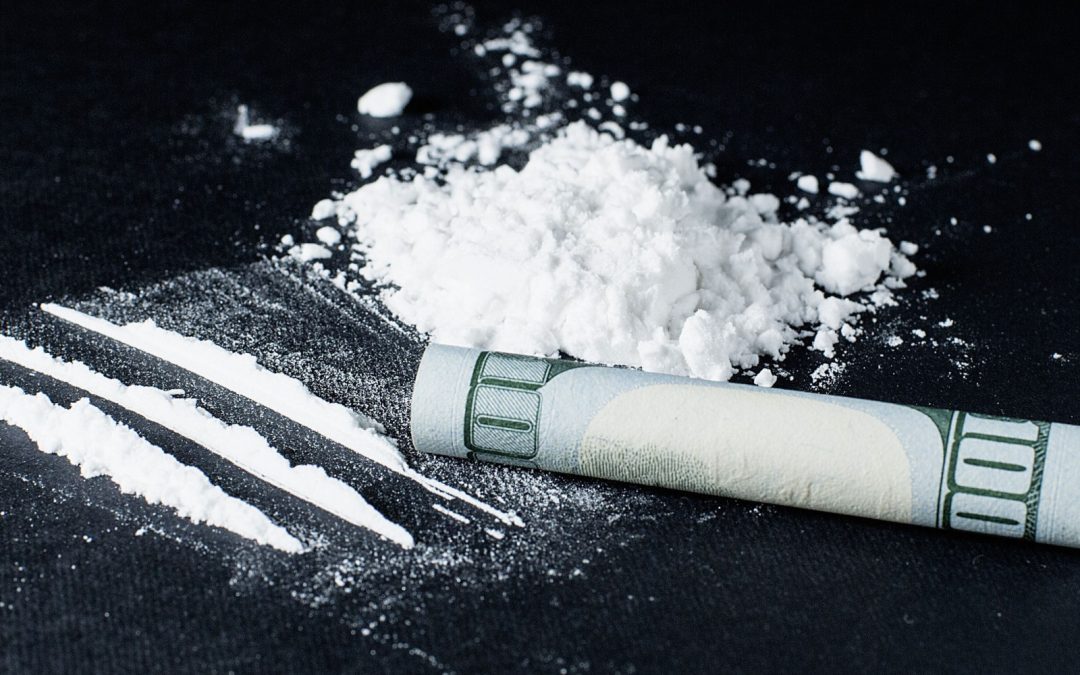Recognizing the signs of cocaine addiction is necessary for overcoming a cocaine use disorder. But overcoming the cycle of addiction can leave you feeling trapped. Without the support and resources of an accredited treatment center, you may struggle to take the first step. That’s why The Willough at Naples provides addiction and mental health services to adults in Florida who are ready to take that step. Below, you’ll learn more about the signs of cocaine addiction and how we can help you start recovery.
Why Cocaine Is Addictive

Cocaine is considered one of the world’s most addictive drugs. It’s a synthetic stimulant that comes from the leaves of coca plants in South America. One of the reasons it’s so addictive is the strong sense of euphoria that individuals feel within a few minutes of using it. The effects of the drug are quick and intense, but they don’t last long. There is also a lot of variety in how cocaine is taken: When in powder form, it can be snorted, injected, or swallowed. In the case of crack cocaine, it can also be inhaled.
But not only does the high from cocaine end quickly, but the comedown also causes feelings of anger, anxiety, and depression. To avoid these unpleasant feelings, individuals use it again and again, oftentimes in short succession to build up and maintain the intensity of the high. The repetition of this behavior plays a major role in addiction. Frequent use leads to tolerance, resulting in the need to use more every time to achieve the same effect, and it causes cravings.
Many people who use cocaine do so in environments where other substances are present. The simultaneous use of cocaine, alcohol, opioids, or other substances is known as polysubstance use. This can lead to dependence or addiction to multiple substances. As a result, you’ll find a number of triggers in the same place, making it difficult to remain sober. The signs of cocaine addiction may not be obvious in the beginning, but over time, the effects of cocaine abuse can negatively impact your mental and physical well-being.
Warning Signs of Cocaine Addiction
Cocaine was once associated with the wealthy. However, lower prices have made it more accessible to a variety of people. As a result, cocaine overdose deaths in the United States have steadily increased in the last few decades. Individuals can become addicted after only a few uses, making it incredibly dangerous.
The risk factors for cocaine addiction vary from person to person. If you rely on cocaine use to cope with a demanding job or to feel confident in social situations, you may be exhibiting the signs and symptoms of cocaine addiction. Others may rely on the drug to avoid difficult symptoms of a mental health disorder or they may have tried it once at a party, only to become long-term users. No matter your reason, you can get help to end your addiction.
Behavioral signs of cocaine addiction include:
- Hurried speech
- Hyperactivity
- Erratic behavior
- Aggression
- Mood swings
- Lying
- Hallucinations
- Paranoia
- Psychosis
Physical symptoms of cocaine addiction include:
- Dilated pupils
- Elevated body temperature
- High blood pressure
- Increased heart rate
- Cardiovascular problems
- Trouble sleeping
- Panic attacks
- Nose bleeds
- Tremors and seizures
Effects of Cocaine Addiction
Long-term use of cocaine can have devastating effects on someone’s life. Not only does it result in negative consequences for your mental health and your body, but it also impacts the lives of your family members and other loved ones. However, cocaine alters the reward circuits in your brain. This causes it to become a compulsive behavior whenever you’re faced with a triggering situation. Dopamine levels are increased, which reprograms the brain to view cocaine use as a reward. Because of this, you may feel unable to stop despite the negative consequences.
Some long-term effects include:
- Family problems
- Relationship problems
- Academic failure
- Job loss and unemployment
- Arrest or imprisonment
- Financial problems
- Cognitive impairment
- Hypertension
- Liver and kidney damage
- Increased risk of heart attack and stroke
- Suicidal ideation
However, it’s never too late to seek treatment. Identifying the signs of cocaine addiction is the first step in getting the help you need. Getting help as soon as possible is instrumental in your recovery. The effects of substance abuse can be difficult to overcome, but they’re not impossible with the right resources. If you’re ready to seek help for your addiction to cocaine, The Willough at Naples is here to support you every step of the way.
Cocaine Addiction Treatment

Due to the highly-addictive nature and the long-term effects of cocaine addiction, you may believe it’s more difficult to overcome in comparison to other substance use disorders. However, this isn’t the case. The Willough at Naples offers a variety of evidence-based therapeutic techniques proven to help adults recover from cocaine addiction. In combination with support groups, supplemental therapy methods, and a dedicated care team, you will have all the resources you need to successfully begin your recovery journey, regardless of what signs of cocaine addiction you’ve experienced.
Cocaine Detox
For many adults ready to stop displaying signs of cocaine addiction, the first step to sobriety is completing a drug and alcohol detoxification program. A medical detox eliminates all of the toxins from your body left over from substances you were taking. This takes place in a trigger and stress-free environment so you can focus on your recovery. Beginning your journey with a medical detox increases your chances of effective recovery and decreases the risk of relapse.
Moreover, cocaine withdrawal can be unpleasant. Some of the symptoms include exhaustion, aches and pains, and tremors. But throughout the detox process, you are provided with 24/7 support from a team of trained physicians, mental health professionals, nurses, and more. Their goal is to keep every patient who has abused cocaine as safe and comfortable as possible during the withdrawal phase.
Detoxification helps you and your body adjust to a life free of drug abuse. The length and intensity of this process depend on your drug history and the severity of your symptoms. Once you have completed detox, your care team will work with you to create the most effective treatment program to meet your recovery goals at the center. Your individualized cocaine treatment plan will take into consideration your health status and the most beneficial treatment options for your long-term recovery.
Dual Diagnosis Program
Many adults struggling with signs of cocaine addiction also struggle with an underlying mental health condition. Symptoms of these conditions may be a reason for your cocaine usage or may be a result of it. But no matter the reason, it’s essential to receive comprehensive care that addresses the symptoms of your addiction and additional mental health disorder. A dual diagnosis program does just that. This type of treatment program gets to the root of your mental health problems by treating both disorders simultaneously.
In addition to its connection with anxiety and depression, long-term cocaine usage can lead to mood disturbances. As a result, individuals are at an increased risk of experiencing psychosis or developing schizophrenia. This is most common when binging cocaine in powdered form. If you are experiencing symptoms of these mental health conditions or any other, the dual diagnosis program at The Willough at Naples can help you. This program will be guide you through the process of receiving a diagnosis and how to manage your symptoms in the long run. This is done through a combination of evidence-based treatment modalities.
Some of the treatment modalities at our center include:
- Cognitive behavioral therapy
- Group therapy
- Recreational therapy
- Medication education and management
- Relapse prevention and planning
- Links to community-based services
Start Your Cocaine Addiction Treatment Today
Recognizing the signs of cocaine addiction is step one in your lifelong healing journey. From there, the staff at The Willough at Naples is dedicated to helping you find the right methods for achieving all of your addiction recovery goals. For more information on how we can help, reach out to our admissions experts at 800-722-0100 or submit a confidential contact form online. We’ll help you overcome addiction at your own pace.

